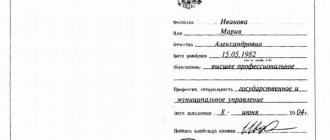There have always been contradictions between employees of a company, enterprise, institution and its administration. All of them develop in the labor sphere mainly in relation to:
- wages - their size, payments, etc.;
- conditions for carrying out labor functions;
- all issues relating to the collective agreement;
- moments when the opinion of the representative body of workers is not taken into account when adopting local acts of the organization.
Collective labor disputes are reflected in the legal acts of our state - primarily in the Labor Code of the Russian Federation (Chapter 61). No one has the right to deviate from the provisions established therein.
We don't argue alone
A collective labor dispute is a certain clash of interests between a group of employees (or their representatives) and the employer (his representatives), which has not yet found an acceptable resolution, regarding:
- working conditions (initially adopted or changed);
- implementation of collective agreements and agreements;
- taking into account collective opinion when approving local regulations.
Question: Should the director of a branch be authorized to work in the conciliation commission when resolving a collective labor dispute? View the court decision
The party to the conflict, called the “employer,” is interpreted as broadly as possible and includes both legal entities and individual entrepreneurs.
IMPORTANT! Since we are considering collective disputes, the staff side is always a collective subject, which means it has the right to act through representatives, just like the employer side. Representatives of any group are not interested in the outcome of the dispute, therefore, although they have the right to personify one of the opposing groups, they are not recognized as an independent party to the conflict.
What it is?
The very concept and types of collective labor disputes include disagreements
, caused by unsatisfactory wages, non-payment of money for work performed, poor working conditions, illegal mass dismissal and so on.
Article 398
. Basic concepts.
Collective labor dispute - unresolved disagreements between employees
(their representatives) and
employers
(their representatives) regarding the establishment and change of working conditions (including wages), the conclusion, amendment and implementation of collective agreements, agreements, as well as in connection with the employer’s refusal to take into account the opinion of the elected representative body of employees when adopting local regulations acts.Conciliation procedures - consideration of a collective labor dispute for the purpose of its resolution by a conciliation commission
, with the participation of a mediator and (or) in labor arbitration.
The day of the beginning of a collective labor dispute is the day of communication of the decision of the employer (his representative) to reject all or part of the claims of workers (their representatives) or failure to report by the employer (his representative) in accordance with Article 400
of this Code of its decision.
Strike - temporary voluntary refusal
employees from performing their labor duties (in whole or in part) in order to resolve a collective labor dispute.
There are many reasons why a dispute may begin. To organize them, the law provides for several classifications.
Based on the level:
- At the local level;
- At the territorial level;
- At the regional level;
- At the interregional level;
- At the federal level.
It is important to note that a strike cannot be used
at all levels, except
local
. In such a situation, advocacy can be carried out at the organizational level.
There is also a classification that distinguishes the subject of the dispute:
- On changing or establishing new working conditions that do not satisfy employees;
- On changes, conclusion or implementation of agreements and collective agreements;
- On the refusal of employers to take into account the opinion of the employee representative in the process of adopting local regulatory requirements.
The last category depends on the method of resolving the labor dispute. They can be divided into only two types
- disputes, the settlement of which is possible without the use of a strike, as well as with the use of a strike.
Collective disputes: legislative aspects
The Labor Code adopted provisions regarding labor conflicts between groups on the basis of Federal Law No. 175-FZ “On the procedure for resolving collective labor disputes” dated November 23, 1995.
Art. 398 of the Labor Code of the Russian Federation practically duplicates the provisions of the Federal Law. Changes were made only to the part concerning the strike as one of the methods of clarifying disagreements, as well as the role of the trade union body in organizing such a protest. The parties to collective labor disputes are defined more broadly in Art. 399 TK.
The Basic Law of the Russian Federation (Constitution) proclaims the right of employees to collectively express their disagreement with the employer and resolve these disputes, including through a strike (Part 5 of Article 37).
Labor law recognizes as its subject not only collective labor disputes themselves, but also the procedure for resolving them (Chapter 61 of the Labor Code of the Russian Federation).
Does a trade union have the right to participate in collective labor disputes ?
Strike as a way to resolve collective disputes
The legislation of the Russian Federation carefully elaborates the competencies and rights of bodies for resolving collective labor disputes. The Labor Code of the Russian Federation fully reflects the procedure for resolving contradictions between the parties immediately before the emergence of a labor dispute considered by the participants of the conciliation commission. This makes it possible to prevent a collective labor dispute.
Of course, the code does not call for workers to go on strike, but recognizes it as a method of resolving a dispute. The Labor Code of the Russian Federation reflects the procedure for declaring a strike, legal guarantees for participants and responsibility for the illegal organization of such an act of protest.
A strike means a period when employees of an enterprise partially or completely do not carry out their direct labor duties, seeking to resolve the existing conflict with the employer. Such an act is of an ultimatum nature in comparison with conciliation procedures. Stopping the labor process forces the employer to listen to subordinates whose rights are infringed. In fact, this is an extreme measure that employees take to defend their legitimate rights and interests.
In accordance with Article 398 of the Labor Code of the Russian Federation, only labor collectives whose demands cannot be satisfied peacefully have the right to participate in a strike.
Article 37 of the Constitution of the Russian Federation provides for a strike as an option to resolve the conflict between the employer and employees. At the same time, Article 55 of the Constitution and Article 413 of the Labor Code of the Russian Federation limit the right to strike.
Such actions are considered illegal:
- if a state of emergency or martial law is declared in the country;
- in organizations of the Armed Forces and ensuring the country's defense;
- in the structural divisions of the Ministry of Emergency Situations;
- in law enforcement agencies;
- in special and hazardous industries;
- at ambulance and emergency stations;
- in organizations that ensure the livelihoods of residents (energy supply, heating, heat supply, water supply, gas supply, aviation, rail and water transport, communications, hospitals), if the strike damages the safety, life, health of the population and the country as a whole.
A strike by workers is permissible if:
- it was preceded by conciliation procedures;
- the employer avoids participation in conciliation procedures;
- the employer ignores and does not comply with the agreements established during the labor dispute.
The employee takes voluntary participation in the strike. Persons who force participation in such an action or refusal from it bear liability, including criminal liability.
The management of the enterprise and its representatives do not have the right to organize a strike.
The decision to hold such a protest action is made at a general meeting of workers, representatives, trade unions or associations of trade union organizations. All listed bodies have the right to declare a strike if they include at least two-thirds of the total number of workers or trade union members.
To make a decision, at least half of those present at the meeting must vote for it. Part 4 of Article 410 of the Labor Code of the Russian Federation provides options if it is impossible to organize a meeting: a representative of employees has the right to make an appropriate decision, having previously collected the signatures of more than half of the team members. The meeting also elects the body that will lead the strike.
Within 10 days before the start of the action, the management of the enterprise must notify the Service, suppliers and consumers about the upcoming event and prepare conditions for maintaining the operability of production, machinery, equipment, etc.
During a strike, each party is obliged to make efforts to reach an agreement to resolve the collective dispute.
In organizations that ensure the livelihoods of the population (hospitals, electricity and gas supplies, etc.) during a protest, minimal assistance should be provided to residents. Within 5 days after the decision to hold a strike is made, the parties to a collective dispute, together with executive authorities and local governments, establish this minimum of services. If services are provided improperly during the designated period, the promotion may be considered illegal.
The result of the strike is the signing of an agreement between the parties. However, by decision of the Supreme Court of the republic, territory, regional court, courts of Moscow and St. Petersburg, autonomous region, autonomous district, it can be declared illegal. To do this, the employer or prosecutor submits an application to the judicial service, after which they notify the body leading the protest action. If the court has determined that a strike is illegal, its decision must be implemented immediately.
If the action was declared illegitimate, but employees continue it even after receiving a court decision to postpone or stop it, they will be subject to liability provided for by the Labor Code of the Russian Federation. For example, an employer can issue a warning, fine an employee, or even fire him, considering absence from work as absenteeism. Disciplinary sanctions may also be applied to the organizers of an illegal strike.
If workers participated in a protest against their own will, those who coerce them through violence or threats will face criminal penalties. According to the legislation of the Russian Federation, such actions are punishable by imprisonment for up to one year or correctional labor for up to two years.
The company retains the specialist’s job during the strike. Payment of wages is made at the discretion of the employer.
According to the Federal Law “On the Procedure for Resolving Collective Labor Disputes,” workers who are not involved in a strike, but because of it cannot perform their direct duties, must receive payment for downtime in the amount of at least two-thirds of their rate. Management may also offer subordinates who do not take part in the protest to temporarily carry out other work while maintaining their average earnings. In turn, the specialist must perform new functions in accordance with certain labor standards or tariff rates.
Possible subjects of labor collective disagreements
The cause of the conflict also determines the composition of the parties taking part in the dispute. Most often, one of the 3 grounds for a group labor dispute is relevant.
- Working conditions. A dispute over established or changed working conditions, including remuneration, can arise either within one structural unit or be common to the entire organization, including its branches and representative offices. The team has the right to argue only regarding those labor conditions that the employer has documented for all employees or certain groups. The conditions established in labor legislation and federal laws are not disputed.
- Concluded contracts and collective agreements. The employer does not have the right to accept such documents alone. A collective labor dispute is valid if the employer does not want to negotiate on the controversial provisions of a collective agreement or agreement, which prevents its conclusion, or does not comply with the recorded agreements, or violates the norms enshrined in these documents.
- Disregard for the opinion of the representative bodies of the team. This basis was not provided for by the mentioned Federal Law of 1995, but it was included in the updated article of the Labor Code. The draft local regulatory act must be agreed upon with the primary trade union organization, if one operates at the enterprise (Article 372 of the Labor Code). If an employer refuses to take into account the opinion of representatives of personnel interests when approving internal documents, this is a reason for expressing collective disagreement.
The emergence of a labor dispute
In order to qualify the contradictions that have arisen as a collective labor dispute, certain signs must be present:
- subjects;
- subject of controversy;
- the reason for its occurrence.
It is necessary to examine each of them in more detail in order to understand the fundamental features of a collective dispute.
Participants
On one side of the dispute are collectives of workers:
- members of a trade union organization;
- association of company employees based on industry;
- a separate division of the enterprise;
- workers acting in defense of common interests.
Important!
If the legal rights of only one person are violated, then such a dispute is not collective, but will be regarded as individual. The employer always stands on the other side of the contradictions that arise. At the same time, there may also be a sign of collectivity. For example, these could be associations of employers in the same industry. It is also possible to form unions on a territorial basis, for example, one region of the Russian Federation.
All parties express themselves and put forward their demands through representatives.
On the part of the employees of the institution, representatives can be trade union organizations, persons authorized in accordance with the statutes of the enterprise, who are elected at meetings and conferences of employees.
On the part of employers, authorized persons also act as representatives. The procedure for electing representatives may be prescribed in the charters and other local acts of the organization. And individual entrepreneurs personally participate in collective disputes with their subordinates.
The subject of the dispute between the collective of workers and employers
In law, including labor law, the subject of disputes most often are rights and legitimate interests. In the case of a collective dispute, these are violated rights and interests of the workers’ association.
Causes
Collective conflicts may arise on the employer’s territory for the following reasons (Article 398 of the Labor Code of the Russian Federation):
- establishing working conditions or changing them - illegal increase in working hours, refusal to grant vacations, etc. This category includes issues related to wages - late payment, imposition of fines, deprivation of the variable part;
- arising from the procedures for signing, reviewing and direct execution of collective contracts and agreements;
- the employer’s reluctance to listen and accept the opinion of the employees’ body to represent their interests when it comes to enacting local acts of the enterprise affecting certain working conditions.
Collective dispute exists in two categories:
- when disagreements and contradictions arise in the socio-economic field, in the everyday sphere of activity of the organization’s employees, when concluding or changing collective agreements;
- when a dispute arises in the process of implementing certain provisions of labor legislation and a collective agreement.
The dispute can be divided according to the type of legal relationship:
- between the collective of workers and the company administration directly, that is, when there is a collective dispute at the local level;
- between the employer and the workers' union;
- above the level of one employer in the field of social partnership.
Important! It is necessary to competently outline an approach to resolving such disputes, find ways to resolve them, and find compromises.
Legal boundaries of dispute resolution
The concept of “permission” is interpreted in two ways: both in the meaning of “permission” and as “resolution of disagreements,” which perfectly characterizes the position of Russian labor law on this issue.
All aspects related to collective labor disputes are quite strictly regulated in legislation - from the right of the collective to express disagreement in permitted ways to the procedure for eliminating the conflict.
The law defines:
- The procedure for presenting claims and making decisions regarding them is in Art. 399-400 Labor Code of the Russian Federation;
- procedures for reconciliation - in Art. 401-404;
- guarantees provided by opposing groups – Art. 405;
- the position of government agencies in resolving labor conflicts of this type - Art. 407;
- the order of striking as one of the methods of legitimate expression of dissatisfaction - Art. 409-414;
- ban on mass dismissal due to collective conflict – Art. 415;
- documentary support of collective conflict and the process of its resolution – art. 418.
Conflict Resolution Law
Labor disputes may arise if the employer plans to change clauses in the contract. Disputes in an enterprise always involve the legal side. The legislation of the Russian Federation includes the Federal Law “On the Procedure for Resolving Collective Labor Disputes”.
General provisions and concepts of the Federal Law
According to the current legislation, all norms and rules are prescribed in the legislative act. The resolution of the dispute can be appointed in a chaotic manner, but respecting the basics.
The main concepts of the law include:
- A collective dispute is a disagreement between two parties.
- Conciliation procedures - a list of possible solutions to a problem.
- Employee representatives are an organization or a specific person that is responsible for the rights and freedoms of employees.
- Representatives of management are a trusted representative of the organization's management, aimed at protecting the interests of the enterprise.
- The beginning of a labor conflict is the starting point of disagreement between the parties.
- A strike is a refusal of workers to do work.
Claims and conciliation process
The conflict begins with changes in the working process conditions. The main factors in starting a dispute are delay or non-payment of wages, changes in contract clauses, and deterioration in working conditions.
According to the current laws of the Russian Federation, in order to formulate demands on their part, employees are required to hold a meeting. The premises where the terms and conditions are discussed must be provided by the company. It is prohibited to interfere with the conference.
Each point of the requirements is accepted or rejected at the general meeting by voting. If similar conditions are offered at a conference, they are combined into a single whole. After agreeing on all the requirements, a protocol is drawn up and certified with signatures. A copy of the document is sent to the conflict resolution service and superiors. The manager must respond no less than 3 days later.
After sending all the requirements, as well as their consideration by the employer, the conciliation commission, mediator and arbitration court begin work. They are obliged to comprehensively study the conflict and find solutions.
Commission, mediator and arbitration
The conciliation commission is composed of proxies from each side, and the body itself is created to resolve the conflict.
The organization is obliged to provide the best working conditions for the work of the commission. The manager has no right to interfere. The case review is carried out no later than 5 days from the date the dispute began. The mediator is appointed by voting. If a compromise is impossible, a person is appointed from outside. The trustee has full access to documentation relating to the dispute. If the parties do not reach an agreement, the case is sent to labor arbitration.
Labor arbitration is a temporary body created by the parties to the conflict. The body consists of three people from each party to the dispute or representatives of a government body. The conflict must be resolved within 5 days. The parties undertake to comply with the decision made by the labor arbitration court as soon as possible.
During the resolution of labor disputes, the following are suspended from work: commission members, mediators and heads of labor arbitration. During a conflict, each direct participant retains a place in the organization and payment of wages.
Guarantees, consequences and additional authority
Lack of action on the part of management leads the document to labor arbitration, skipping the commission and the mediator. If the employer completely refuses to cooperate, workers may go on strike.
In addition to the participants on both sides, a government agency gets involved in resolving the conflict. The state association deals with organizational issues, as well as assistance to the parties. The composition of the body can freely demand the necessary documentation and has constant access to the enterprise.
Workers' strike
If the parties have not reached a compromise or management has shown indifference in solving the problem, the enterprise’s employees have the right to organize a strike. Participation in a riot is a free choice. For forcing people to go on strike, those responsible are liable in the form of administrative or criminal penalties. Management is not eligible to participate.
According to the law, to start a strike it is necessary to hold a conference where the rules of conduct for workers are determined, and to obtain the consent of at least half of those present. The number of dissatisfied employees should not be less than a third of the total number of workers in the organization.
The entire initiation process and rules of conduct must be documented in writing and certified by signature. Employees and their representatives are required to notify their superiors of the start of a strike.
Employees use a union or a proxy to negotiate between the parties. The elected representative provides ongoing notice of management's actions and can also end the strike. To renew it, they do not collect an additional commission, but only notify the state body and the management of the company about the continuation no later than three days later.
During the resolution of the conflict, the management side is obliged to ensure normal conditions for the strike, and the workers are obliged to ensure order and safety of the company’s property. Participants must adhere to the necessary standards to ensure the safety of human life:
- Providing essentials (water, food).
- Help from a medical professional.
- Ensuring the safety of each participant.
In the absence of minimum security services, a strike is considered illegal. A situation where management was not notified of the start of the process is also considered illegal. It is prohibited to hold meetings if a person’s life is at risk. Military personnel, law enforcement officers and security services cannot go on strike, since the absence of representatives of these professions from work can cause significant damage to the country.
To declare a strike illegal, you must appeal to the Supreme Court of the Russian Federation. If a riot causes direct harm to a person’s life, the court decides to stop the process for up to 30 days. The decision must be announced the next day to the participants through the trade union.
Guarantees and responsibilities of the parties
An employer does not have the right to fire workers during a strike; in addition, an enterprise cannot be liquidated during a conflict.
Management independently decides whether to pay wages to striking employees or not. Workers who perform the minimum list of services at the enterprise during a conflict are required to be paid money by their management. For working employees who are deprived of their jobs during the dispute, management undertakes to pay for downtime, and their positions and places are retained.
If management refuses to comply with the decision made or if the dispute is avoided, the administration is reprimanded. Workers who carry out an illegal strike are obliged to pay losses and compensate for the harm caused. Government bodies draw up protocols and collect fines from violators.
Thus, to resolve labor conflicts, it is necessary to strictly comply with the provisions of the federal law. To avoid problems, it is necessary to carefully study the employment contract before a person starts working at the enterprise.
Making demands
Which group of employees is authorized to officially declare their dissatisfaction or disagreement to the employer? If there is a trade union organization (or an association of trade unions for several organizations or divisions), then this is precisely its prerogative.
But if there is no such body or less than half of all employees working for this entrepreneur are members, a different path is needed. A general meeting of the team (conference) is convened and held, where a certain circle of representatives is elected and a list of put forward demands is formed (all by a majority vote). The employer should not interfere with the conduct of such gatherings; moreover, he is obliged to provide premises for this.
NOTE! A mandatory requirement for the validity of such a conference is a quorum of 50% or more of all representatives of the team.
The demands of the team representatives are submitted to the employer in writing, and the date of submission is recorded. A copy of this document should be sent to the regulatory government agency (Federal Service for Labor and Employment).
Procedures preceding a collective dispute
The settlement of disagreements in disputes between the collective of workers and the employer occurs according to a certain procedure. The process is born at a general meeting or conference, when requests and demands must be formulated. However, these must be stated in writing. Such a list must be sent to the company administration for consideration.
It is necessary to distinguish a conference from a meeting:
- more than half of all workers must be present at the meeting;
- For the conference to be valid, at least 2/3 must participate.
And approval of the list of demands will be legitimate if more than half of those present voted for it. In addition, at this event, employee representatives are elected who will be participants in the collective dispute.
After receiving a list of requests, the employer is obliged to consider them within two working days (Article 400 of the Labor Code of the Russian Federation). This number of days is applicable for individual entrepreneurs and organizations.
Within three weeks, workers' demands are considered by employers at other levels:
- in the field of one branch of activity or production of enterprises;
- interregional;
- territorial;
- at the subject level;
- federal
The deadlines must be counted from the date of receipt of written complaints. The answer is also given in writing.
In some cases, employers satisfy all workers' demands in full. In this situation, there are no grounds for initiating a collective dispute. Otherwise, if a number of demands are rejected or all of them are rejected, a collective dispute arises.
Employer's actions upon receipt of requirements
Having received a “note of dissatisfaction” from his team, the employer cannot ignore it. His further responsibilities:
- make a decision on the issues raised within three days;
- notify the representative body of the collective in writing about your decisions;
- if the demands were transferred to representatives of employers, then the employer has a month to make a decision and respond to the trade union.
ATTENTION! Until a response to the submitted demands is received, representatives of the collective have the right to support their demands through strikes, pickets, rallies, meetings, demonstrations (Part 8, Article 401 of the Labor Code of the Russian Federation).
Causes
The cause of labor disputes is usually uncertainty and lack of agreement on certain issues.
Perhaps the employer issued an act that was not entirely lawful, or the employee does not fully understand that changing the schedule is an obligatory task that is intended to only make things better.
One way or another, a collective labor dispute is an excellent way to establish mutual understanding between an employee or employer.
Procedure for resolving collective labor disputes
The service for settlement of collective labor disputes is formed within the executive branch. Neither party to a dispute has the right to neglect conciliation procedures; administrative liability is imposed for this (Article 5.32 of the Administrative Code). These procedures are prescribed if the employer’s decisions on the demands put forward to him could not satisfy the applicants or were not made within three days.
1 step. Conciliation commission. After the employer rejects or insufficiently satisfies the team’s demands, both parties have three days to form a reconciliation commission. The employer issues a special order, and the representative body makes a decision, according to which the commission includes an equal number of representatives of each party. The law allows 5 days from the moment the order is signed to resolve the dispute. The results of the review (items required to be completed and their deadlines) are recorded.
IMPORTANT INFORMATION! If, with the help of the conciliation commission, it was not possible to reach an agreement, or at least one of the parties did not comply with the decision within the recorded period, you need to take one of the following steps - turn to a mediator or arbitration to resolve the dispute.
Step 2. Mediator. A three-day protocol of disagreements, which was the result of the work of a conciliation commission that did not fulfill the mission of reconciliation, gives the right to invite a mediator. This may be a person agreed upon by both parties, or may be recommended by the Settlement Service. The mediator is given a week to try to reconcile the parties. The result of its work can be:
- agreed decision (written);
- new protocol of disagreements.
Step 3. Arbitration. You can proceed to this step immediately after the first stage, bypassing mediation. There are three days after the first (second) protocol of disagreements to form an arbitration commission. The arbitration is compiled by all three parties to the dispute – the team, the employer and the Settlement Service. The list of arbitrators is finally approved by the Service, which also trains these specialists.
REFERENCE! Arbitration consideration is mandatory in those organizations where the law restricts or prohibits strikes (Article 406 of the Labor Code).
With a freshly drawn up arbitration, a collective labor dispute is considered within 5 days. The arbitrators develop and approve a set of recommendations for both parties, regarding which the parties sign an agreement on performance obligations in advance.
Dispute resolution procedure
The Labor Code states that there is a procedure for resolving conflicts. Regarding the amount of time for reconciliation, collective labor disputes and the procedure for resolving them may have their own difficulties. Accordingly, everything can be resolved either in a few days or last several months. In any case, labor legislation offers several stages to solve the problem:
- Conciliation commission. This is a local service for the settlement of collective labor disputes, which forces each party to be in this commission. An attempt to evade established requirements is subject to administrative
. If for some reason the dispute could not be resolved thanks to the conciliation commission, you need to move on to the next stage;
Article 402
. Consideration of a collective labor dispute by a conciliation commission.
In the event of a collective labor dispute at the local level of social partnership, a conciliation commission is created within up to two working days
from the date of the beginning of a collective labor dispute, and in the event of a collective labor dispute arising at other levels of social partnership - within up to
three working days
from the date of the beginning of a collective labor dispute.The decision to create a conciliation commission when resolving a collective labor dispute at the local level of social partnership is formalized by an appropriate order
(order) of the employer and the decision of the employee representative.
Decisions on the creation of conciliation commissions when resolving collective labor disputes at other levels of social partnership are formalized by relevant acts
(order, regulation, resolution) of representatives of employers and representatives of employees.The conciliation commission is formed from representatives of the parties to a collective labor dispute on an equal basis.
Parties to a collective labor dispute do not have the right
avoid creating a conciliation commission and participating in its work.
The employer (employers' representative) creates the necessary conditions for the work of the conciliation commission.
A collective labor dispute at the local level of social partnership must be considered by a conciliation commission within three working days
, and a collective labor dispute at other levels of social partnership - within
five working days
from the date of publication of the relevant acts on its creation.The decision of the conciliation commission is made by agreement of the parties to a collective labor dispute and is documented in a protocol
, is binding on the parties to this dispute and is executed in the manner and within the time limits established by the decision of the conciliation commission.
If agreement is not reached in the conciliation commission, the parties to the collective labor dispute begin negotiations on the consideration of the collective labor dispute with the participation of a mediator
and (or) in labor
arbitration
.
- Review through a mediator. In itself, the procedure for considering a collective labor dispute with the participation of a mediator provides for the following: such a person can be a representative who is chosen by both parties
to the process, or he is appointed by the Service for the Settlement of Collective Labor Disputes. This stage also usually does not lead to noticeable results (although there are exceptions). We need to move on to the third stage; - Labor arbitration. The law states that labor arbitrations are bodies that consider
collective labor disputes, chosen by each party to the employment contract.
It is important to note that labor arbitration can be created no later than 3 working days
after the mediator or conciliation commission finishes considering the dispute.
It also happens that the employer decides to exclude the possibility of creating labor arbitration, or does not comply with the recommendations established by this body. In this case, workers have the full right to organize a strike
.
The conciliation commission can sometimes come to a common conclusion that satisfies each party. In this case, a special protocol
.
For each party it necessarily has its own legal force
. The procedure for fulfillment and deadlines for fulfilling obligations are indicated in the signed protocol. As soon as a decision to resolve the conflict is made, the conciliation commission will automatically cease its activities.
As for a strike, it can only be used as a last resort
resolving a collective dispute.
Typically, such actions are carried out when the employer has flatly refused to cooperate
with his employees, or he is fulfilling the obligations assigned to him.
As the general characteristics of collective labor disputes say, a strike as a conflict resolution mechanism can begin only after a decision has been made to declare it. Labor legislation obliges specialists to notify
their employer in advance of such an event.
The length of notice may depend on specific circumstances. So, for example, if the enterprise is not working, you need to inform the employer no later than 7 days
before the date of conduct, and when making a decision in a production facility operating continuously, the period increases to
15 days
.
Last resort
If the employer’s side still refuses to implement the decisions made after this step, the employees have no choice but to strike . The employer will receive written notice 5 days (and his representatives a week) before the start of this action that his workers voluntarily refuse to perform their functions until the collective labor dispute is resolved.
During a strike, negotiations to resolve the conflict must continue until a mutual agreement is reached.
Case consideration period
The time frame for solving the difficulties encountered is established by the same chapter of the labor code. Adjustment of deadlines is possible only by mutual voluntary agreement of the parties. The procedure for resolving collective labor disputes is carried out during the periods indicated in the table.
| actions | deadlines | |
| consideration of requirements: | head | 2 days |
| employers' association | 3 weeks | |
| creation of a commission | local level | 2 days |
| others | 3 days | |
| consideration of the conflict by the commission | local level | 3 days |
| others | 5 days | |
| decision on the need for a mediator | the next day after the review protocol | |
| approval of the candidacy | 2 days | |
| dispute resolution by a commission with a mediator | local level | 3 days |
| others | 5 days | |
| referral to arbitration | The next day | |
| arbitration agreement | local level | 2 days |
| others | 4 days | |
| arbitration | local level | 3 days |
| others | 5 days | |
Thus, satisfaction of employee demands or refusal can be resolved within a couple of days or weeks. Some cases may take up to a month.
Conciliation commission
It is a mandatory step, regardless of the wishes of the parties. Administrative liability is provided for evading participation in it, in accordance with Art. 5.32 Code of Administrative Offenses of the Russian Federation.
This body is temporary and is created within 3 working days from the moment a disagreement occurs. The start date of the conflict is considered to be one of the following events:
- receiving from the manager a refusal to accept the employees’ conditions (in whole or in part);
- lack of response from the boss within 3 working days after receiving the claims;
- the day of registration of the protocol of disagreements during the period of collective bargaining.
A solution to the conflict must be found within 5 working days after the formation of the commission (the deadlines can be extended by agreement of the parties and subject to the execution of an appropriate protocol).
The adopted decision is documented in a protocol and is subject to immediate execution by each of the parties within the established time frame.
If at this stage it is not possible to reach an agreement, conciliation procedures move to the next stage.
Classification
If we talk about the nature of the emergence of collective labor disputes, then it undoubtedly lies in their classification. Scientists identify many types of disputes, however, all legal theorists are inclined to one, general theory:
- Dispute about changes in working conditions. For example, the wages of employees, their jobs and other conditions related to the implementation of their activities may change.
Disputes regarding a collective agreement (conclusion, amendment or termination). The collective agreement provides for various types of regulations that apply to the employees themselves. Therefore, unauthorized changes to this document may lead to a collective labor dispute between the parties.- Disagreements may also arise due to the fact that the employer does not listen to the opinion of the elected employee representative. The representative is elected by a majority vote of workers and represents the interests of workers before the management of the organization. Refusal of requests by the employee representative may lead to a collective labor dispute.







